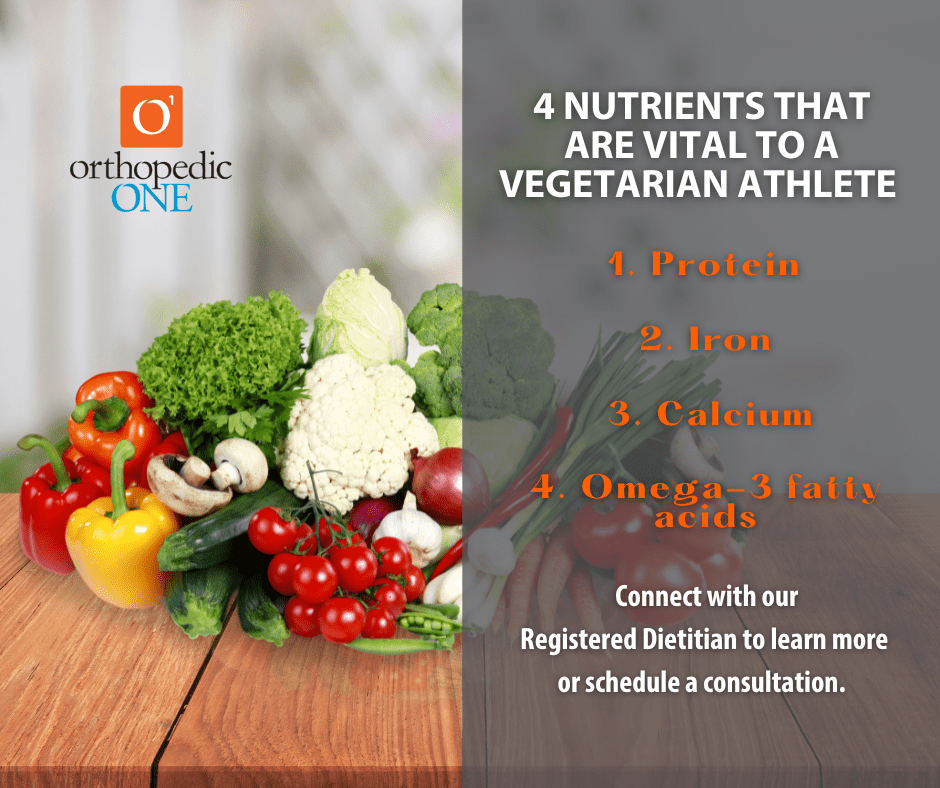THE VEGETARIAN ATHLETE
It’s a common misconception among athletes that you can’t follow a vegetarian diet and be successful. This is untrue.
However, vegetarian diets for athletes do require a little more thought and attention to ensure that you are getting all of the nutrients you need.
First, vegetarian athletes can often be in a calorie deficit. This is because vegetables are lower in calories than most animal foods. As an athlete it is important to make sure you are eating enough to support your day to day activity. Eating enough food is vital to your health for many reasons such as immune health and skeletal health. Some signs of undereating are frequent illness and injury, fatigue and loss of menstrual cycle.
Nutrients that are often lacking in a vegetarian diet are protein, iron, calcium, vitamin B12, and omega-3 fatty acids.
- Protein is important for all athletes because it is needed to build and repair muscles. Without enough protein, the benefits of training are not optimized. Vegetarian sources of protein include soy products like tofu or tempeh, beans, and lentils. Lacto-ovo-vegetarians do eat eggs and dairy which are great protein sources as well.
- Iron is a nutrient found in the highest concentrations and bioavailability in animal foods. Iron is important for delivering oxygen to your muscles to perform. Plant-based iron foods include beans, lentils, spinach, and fortified cereals and breads. To enhance absorption of these foods try to eat them with vitamin C-rich foods like citrus, berries, melon, peppers, and broccoli.

- Calcium is one nutrient that can be harder for vegetarians to get. Calcium is important for strong bones and muscle contractions. Plant-based calcium sources are dark leafy greens, broccoli, almonds, and fortified tofu. Additionally, most milk alternatives are fortified with calcium, but be sure to check labels.
- Vitamin B12 is found almost exclusively in animal foods, therefore it is difficult to get through a vegetarian diet. This vitamin is needed for functioning of the central nervous system, red blood cell formation, and DNA synthesis. Good sources for lacto-ovo-vegetarians are yogurt, milk, cheese, and eggs. Other options are nutritional yeast and fortified cereals. It may be a good idea to take supplements with the three above mentioned nutrients if you follow a vegetarian diet. Talk to your doctor first to make sure it is safe.
- Finally, omega-3 fatty acids can often be lacking for vegetarians who do not eat fish since EPA and DHA are two that are found in highest concentrations in fish. Other options with healthy fats are seeds and nuts. These fatty acids are important for brain health, muscle recovery, and managing inflammation. Omega-3 supplements may also be a good idea for vegetarians who do not eat fish.
If you experience any symptoms of fatigue, frequent muscle soreness, illness, or injury following a vegetarian diet you may need to take a look at your intake of these nutrients.